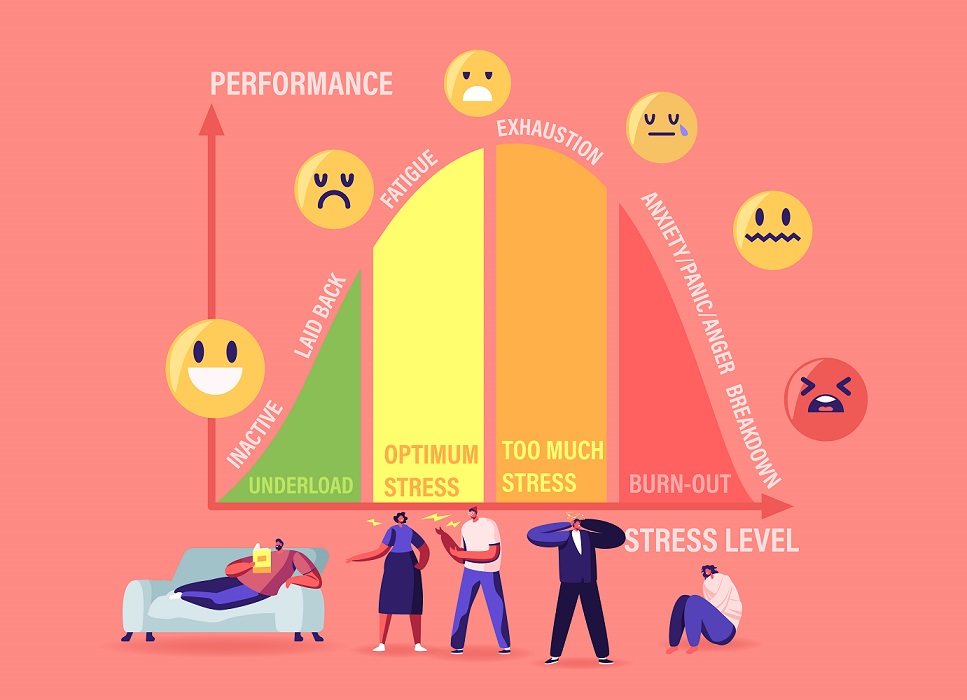
Burnt Out or Exhausted? Take Back Control in Seven Steps
Has the feeling of dread and overwhelm become part of your morning routine? You might be spiralling towards Burnout: A notorious step-down in the career ladder. Recognize the red flags early on so you can take action.
What is Burnout?
Burnout is caused by prolonged stress, it is triggered by a wide portfolio of factors spanning from personal setbacks to being overloaded with work tasks. This severe condition often makes day-to-day tasks at home and at work seem impossible.

Credit: Freepik
It creeps in unnoticed and can drain your sense of purpose and joy before you know it. If not treated properly, it may result in emotional, physical and mental exhaustion, leaving you feeling sapped of energy, empty and defeated.
Burnout doesn’t happen overnight, it is a gradual process. The signs are subtle at first and slowly intensify. It is important to recognise the warning signs of burnout and change your working habits or environment in time.
Recognize the Signs
In order to stay healthy and function well, it is essential to be aware of your mental and emotional condition. Just as burnout affects the quality of your lifestyle, the quality of your lifestyle may prevent burnout from even happening. Here are the most noticeable symptoms of burnout according to organizational psychologist Dr Deborah Olson.
| Minor health complaints | Lowered job performance |
| Chronic tiredness | Interpersonal problems |
| Trouble sleeping | Poor self-care |
| Impaired memory and concentration | Dark emotions and thoughts |
Chronic stress often leads to exhaustion, in turn, the immune system weakens and leaves the body susceptible to colds, flu and insomnia. Headaches, muscle pain, change in appetite and disturbed sleep are other common physical symptoms.
Stress can be overwhelming for the psyche and fosters moodiness, apathy and irritability. Relationships suffer as frustration is taken out on others. Motivation to take care of oneself wavers. You could be reaching the limit if you are experiencing dark emotions such as anger, depression, anxiety, cynicism and numbness.
Seven Steps to Avoid Burnout
Working super hard and giving it your all can seem like a fast track to success, but running yourself into the ground will lead to failure advises Olson. It is far more effective to work at a rate that you can sustain in the long term.

Credit: Freepik
- Say ‘‘no’’ to tasks that aren’t necessarily going to get you to your end goals.
- Be willing to let go of perfectionism, where ‘‘good enough’’ is a sufficient result.
- Don’t ruminate, spiral thinking will get you nowhere. Try to think positively or distract yourself before repetitive thoughts overpower you.
- Step back. Take a break from environments or circumstances that are causing you too much stress.
- Make your self-care routine a priority. A healthy diet, rest and exercise are as important as your paycheck.
- Pursue your values. Find ways to connect with what you believe in and realign with your goals. Keep a gratitude journal.
- Practice relaxation techniques such as yoga, meditation and mindfulness to rest and reset your body and mind.
Recovery and Growth
Getting out of the burnout trap might require external help. The key is not to be afraid to ask. Treating burnout starts with acknowledging the situation and being honest to both yourself and to those it affects. You could be surprised by the relief one feels after sharing the burden.
Consider:
- Seeking professional help
- Talking to your supervisors about your workload
- Reaching out to family and friends
Just like a forest fire leaves a fresh slate for new beginnings in its aftermath, hitting rock bottom is one of the best moments to rethink career options and reevaluate life goals. Don’t lose faith in yourself, burnout is a setback but it can be overcome.
Hundreds of opportunities are waiting for you on Jobspin.cz. Join the upcoming job fairs in Prague and Brno and check out the top multilingual jobs on offer in the Czech Republic.

